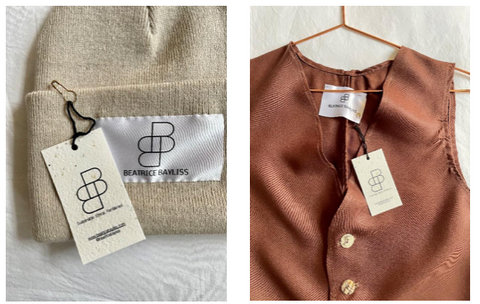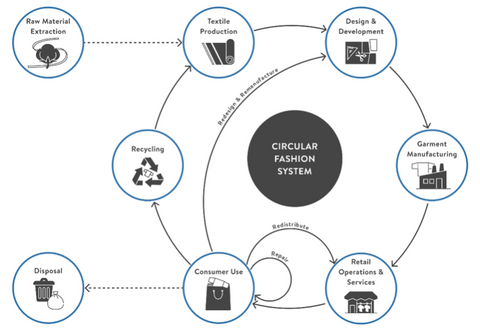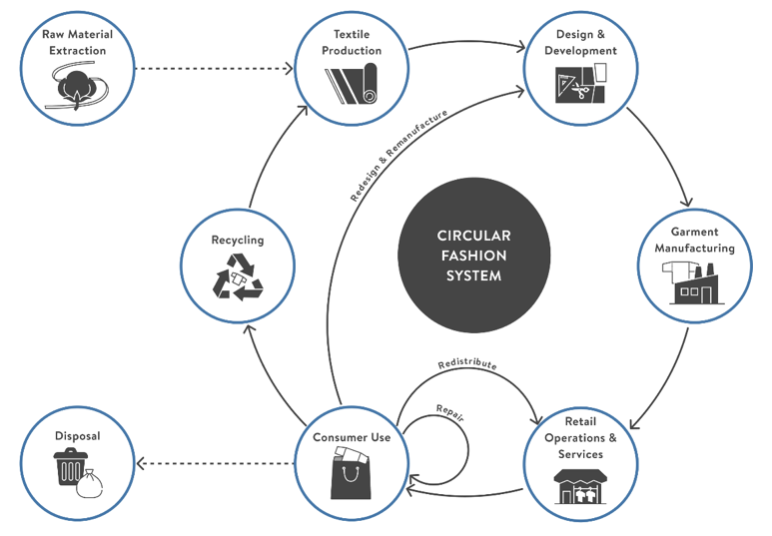Community engagement and education in sustainable slow fashion play crucial roles in fostering a more conscious and responsible approach to clothing consumption. Beatrice Bayliss wants to help raise awareness about these issues, informing people about the negative effects of overconsumption, exploitation of labour, and pollution caused by the fashion industry. Community engagement efforts can inspire behaviour change at both the individual and collective levels, that’s why through our work and engagement with weekly blogs and post’s people can learn more about alternative consumption patterns such as buying second-hand, repairing, and upcycling clothing, and supporting local artisans and sustainable brands.
By bringing people together, we want to promote ethical and eco-friendly fashion, and build a community that works towards common objectives such as reducing waste and supporting fair labour practices. Let’s go straight to it: 10 reasons why mindful purchases are important and how Circular Fashion can help improve your consumption habits?
- Reducing Overconsumption: Slow consumption encourages individuals to buy less and buy better. Instead of constantly chasing the latest trends and buying new clothing frequently, people are encouraged to adopt a more mindful approach to their purchases, focusing on quality rather than quantity. This reduces the overall demand for new clothing, helping to alleviate the environmental and social impacts associated with overproduction and overconsumption in the fashion industry. The slow fashion movement encourages mindful consumption, urging consumers to buy less and invest in quality pieces that they will cherish and wear for years to come. This shift towards conscious consumerism promotes a more sustainable approach to fashion.
- Supporting Ethical Practices: Mindful purchasing involves considering the ethical and environmental implications of a product before making a purchase. This includes factors such as the working conditions of garment workers, the environmental footprint of the production process, and the transparency of the supply chain. By supporting brands that prioritize ethical practices and sustainability, consumers can drive demand for more responsible and transparent fashion industry practices. You can always search the brand online and read about their practice in order to be mindful of the purchase beforehand.

- Promoting Longevity and Durability: Slow consumption encourages the appreciation of craftsmanship and the value of well-made, durable clothing. Instead of viewing clothing as disposable items to be discarded after a few wears, mindful purchasers seek out timeless pieces that are designed to last. This shift towards valuing quality over quantity promotes the longevity of clothing items, reducing the need for frequent replacements, and ultimately reducing waste.
Speaking about longevity, keep your eyes open for our Knitwear collection coming up soon 😊
- Encouraging Conscious Decision-Making: Mindful purchasing involves taking the time to consider the true cost of a product, including its social, environmental, and economic impacts. By practising mindfulness in your purchasing decisions, you can become more aware of the consequences of the choices that align with your values and beliefs. This conscious decision-making process fosters a deeper connection with the items we own and encourages a more sustainable approach to consumption.
Challenge: Try to challenge yourself to not buy any clothing for a month. If at the end of the month you easily passed the challenge, try it for another month. This is how some people started this year with a new resolution - to not purchase any clothes for the entire year. We guarantee you will feel a lot better as not only you save on money, but you have successfully gained back control over the impulse purchasing habits. Good luck!
- Cultivating Gratitude and Satisfaction: Slow consumption encourages a shift away from the constant pursuit of new possessions towards a mindset of gratitude and contentment with what we already have. By cultivating a sense of appreciation for the items we own and taking care of them properly, we can derive more satisfaction from our belongings and reduce the desire for constant consumption.
- Adopting the concept of circular fashion: The concept of circular fashion, which aims to minimize waste and maximize the lifespan of clothing through practices such as upcycling, recycling, and garment rental or resale, is gaining traction. More brands are exploring innovative ways to close the loop and reduce their environmental impact. (check our Re-Defined collection) Circular fashion is a concept that aims to create a closed-loop system within the fashion industry, where garments, textiles, and materials are reused, recycled, or repurposed at the end of their lifecycle instead of being disposed of as waste.

- Waste Reduction: The fast fashion industry is a significant contributor to global waste, with millions of tons of clothing ending up in landfills each year. Circular fashion seeks to minimize this waste by designing products and systems that keep materials in use for as long as possible, thereby reducing the environmental impact of clothing production and disposal.
- Resource Conservation: Traditional fashion production relies heavily on finite resources such as water, energy, and raw materials. Circular fashion promotes resource conservation by prioritizing the reuse, recycling, and regeneration of materials, reducing the need for virgin resources, and minimizing the environmental footprint of the industry. In the 2024, there are many ways in which a fabric can be repurposed.
- Economic Opportunities: Transitioning to a circular fashion model can create economic opportunities by fostering innovation, job creation, and new business models within the industry. By investing in technologies and processes that enable the recycling and remanufacturing of textiles, circular fashion can generate revenue streams from previously discarded materials and create new markets for sustainable products and services.
- Systemic Change: Embracing circular fashion requires a shift away from the linear "take-make-dispose" model of production and consumption towards a more regenerative and sustainable approach. This systemic change involves rethinking the way clothing is designed, manufactured, distributed, and consumed, leading to a more resilient and equitable fashion industry.
You can have a look at our Re-Defined collection where Beatrice Bayliss wants to help you extend the lifecycles of your clothes by repairing them or upgrading them. BB Re-defined creating clothing that lasts longer, BB helps you be a part of the Circular fashion which minimises the amount of waste generated over time.
Overall, circular fashion offers a promising solution to the environmental and social challenges facing the fashion industry, providing a framework for creating a more sustainable and circular economy that benefits both people and the planet.
By Kristin Aleksandrova
